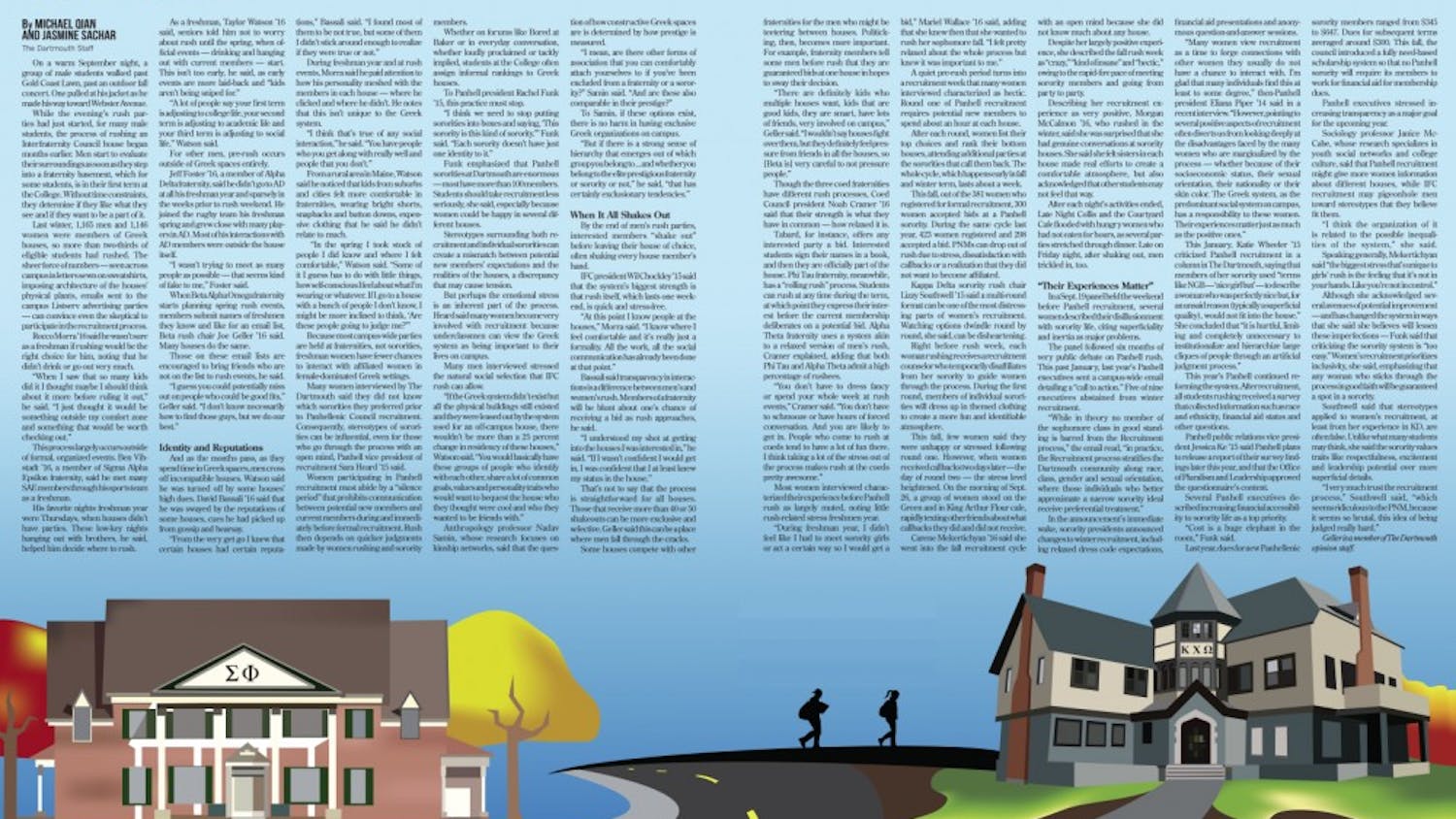I remember that day during spring 2013 when classes were cancelled and we had speakers talk to us about the problems at Dartmouth. One of them said that there are a few bad eggs out there screwing it up for everyone else with bias incidents, sexual misconduct, and hate. This puts the blame on a handful of people, reassuringly, but is ultimately untrue. The blame for these behaviors falls on everyone who fails to step in when the roots of these behaviors are displayed.
People blame fraternities for a lot of Dartmouth’s issues. Then other people defend certain members of “guilty” houses because they don’t believe their friends are the problem (while still condemning the house as a whole). To some extent this is true. Most houses are predominantly populated by positive, fundamentally good people. The issue with this view is that the intolerable behavior is the result of the relationships and behavior-determining feedback loops generated by those individuals and their organization. If someone in a fraternity commits questionable acts, all the members are partially to blame for enabling and supporting an environment that could lead to such behavior. Think about the Tea Party. Marginal actors drag the group toward the extreme, normalize it, then push the limits beyond what the majority of members individually would like, but which they are collectively unable to control. That’s where fraternities at Dartmouth have ended up — collectively something that the majority of members would not condone or believe in, but something that enables destructive behavior nonetheless.
But how do you break these feedback loops? Given that Dartmouth’s social scene — for better or worse — has evolved into self-selecting gendered, relatively homogenous populations, how do you introduce into these groups disjunctions in behavior modeling and acceptance without violating their right to exist as an independent group? The answer is probably simple: introducing empowered women into these spaces.
The “Sibling House” program would introduce strong female presences more frequently into fraternity spaces, especially during events and scenes where these negative behaviors are being pushed and tested, without sacrificing aspects of the fraternity system that are positive and valued by its members. In the macro sense, a sorority and a fraternity would become “Sibling Houses,” not coed, but in that direction. Members would have bonds closer than those of just friends, approaching the sibling style of caring for one another, without completely merging into one institution. On the micro level this means a lot of key changes: door code access for all members to both houses, social events open to both houses, shared door duties at both houses, shared control of alcohol flows, a shared blitz list, a shared term formerly known as pledge term, a semi-shared rush process, shared pong line-holding abilities, joint meetings and cooperation between the two houses’ execs. Building out of these basics could accomplish so much more. It has inherent flaws but at the end of the day accomplishes the crucial goal of bringing females into spaces and disrupting the feedback loops that hurt our campus.
I’ll admit, this idea started simply because I am a member of Sigma Phi Epsilon fraternity, and I have a passion for Sigma Delta sorority that burns with the fire of a thousand suns. I saw the two as being able to move campus in a really positive direction through such a plan. Since the initial idea this summer, I’ve spoken to hundreds of people about it, including College President Phil Hanlon and the presidential steering committee. Besides those who simply refuse to yield their desire of gendered spaces, nobody has had anything but good things to say about this “Sibling House” plan. I’m eager to hear what you think.
Obviously the plan will only work with consent of both parties. There would have to be long debates, arguments for and against, focus groups, alumni consultation, national consultation, meet-and-greets. You cannot just decide that 200 people will start being great friends overnight. If this system were given a year or two, and with a slow phasing in, I believe we would end up with a Greek system that is more inclusive and safe, one that promotes much more personal growth and community than the current system, without sacrificing the majority of what makes it attractive to so many people today. Instead of replacing or crippling the Greek system, this plan adds another layer of community on top of the system that, through distribution of authorities and encouraging intergroup interactions, can prevent many of Dartmouth’s problems today.
Around campus (or around the world), you might be surprised at how many questions have the same answer: empowered women.
Taylor Watson '15 is a guest columnist.


